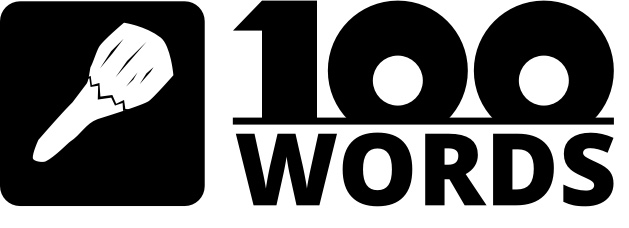100words
The massive problem in the world that I could totally solve
In the new and very fine tradition of Killing Darlings, that is killing ideas that linger and languish in text files and notebooks from here to eternity, it’s only fitting I put to rest one of the first hackneyed schemes for design glory. This was one of my first product ideas, so good to write it up and figure out why.
I have a varied background, so does my wife and thus my kids twice that put together. My parents come from one country, I grew up in another, moved to their country, then to another one and then back again. In my household, three languages are spoken, at volume and with varying degrees of confidence, spite and pomp. I’ve learned, to varying and not quite great degrees of success, everything from Croatian to Turkish. One thing they all have in common is that it all sucks. It’s hard. I’ve been there.
In case you’ve never used the Internet, the 80–20 Rule, AKA The Pareto Principle, is a rule that they say applies to almost all things, from harvest to building software nobody uses. So the gist is that 80% of effort results in 20% of gains, and the opposite meaning 20% of effort results in 80% of gains. It’s a thing, look it up.
If the 80–20 rule applies for most things, then according to Zipfs law, we have a power law for language, meaning you only have to know where to put 20% of that effort.
For instance:
- The top 10 words account for 25% of used language.
- The top 100 words account for 50% of used language.
- The top 50,000 words account for 95% of used language.
You see where this amazing product name was going then don’t you? How’s that for a language hack Tim Ferris? You just have to learn 100 Words and you’re off to the races. Well, that was the idea, that I had to invent and, of course, actually build an app, of course, that helped you learn 100 words of a language.
Also, I did a logo, which is all you really need in the end of the day.

What I thought should be done about it
What if there was a system, which was also an app that would of course make me rich, that helped me learn just enough caveman Turkish to get by at a bare minimum? This was the basis for the whole thing, and thus the inspiration for the logo.
For instance:
- “No tea. Enough.”
- “No more food. Enough me”
- “Yes, more rakı.”
- “Wife out, in park. Children here no.”
I’ve struggled through languages enough to know not to give too much of a shit about grammar, and to know that the most important thing initially is to get the point across. After a time you pick up how to do it correctly. The goal with 100words is to brute force your way, to talk like we imagine a caveman would, which is this cartoonish, crude, simplistic manner. But it’s enough, which is the key. You don’t need to know how to write poetry, and you most likely won’t ever have to read a deposition without any help, contrary to what most language teachers think. To get going you just need to go, no matter how crudely.

“Look at this amazing app my multi-cultural friends, I’m learning how to get more beer semi-properly in Navajo. Nominative or accusative case? Who cares!”
“This app won’t make learning a language any easier. This app will make learning words and phrases that get you through situations easier.”
This was the tagline, which was the entire idea. What was the MVP (Minimum Viable Product) you ask? I reckoned it would be a site, because at this point I already gave up on the app, where you find the 100 high frequency words of a given language and then some sort of thing/method/bullshit that I would nick from some productivity guru on how to learn those 100 words quickest.
There would of course be some sort of social bit, suggesting words or phrases based on similar lists, and then some type of flashcards I imagined. The thing I was really keen on was a really quick, yet to be designed, method for entering words you hear that you don’t know which you would then look up later. You would use the app to translate that word, add a picture to help the old memory machine upstairs, and then have it added to your list of what would invariably grow beyond 100 words. And then maybe after 100 words you pay? Who knows.
Where it went
Obviously nowhere. It’s here in words, getting ready to be shoved off the cliff into the Great Beyond. But this is one of the things that I swear could have been a thing.
